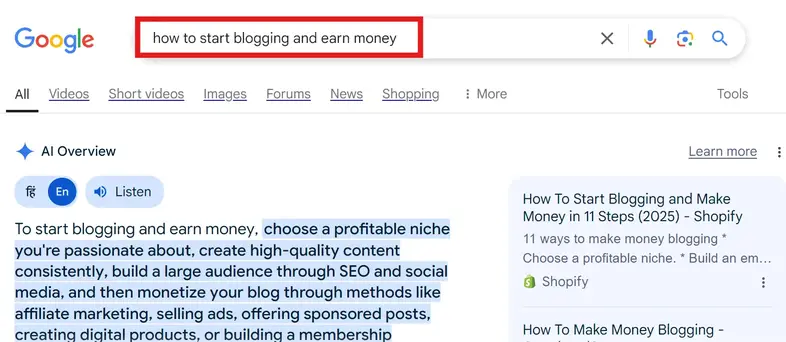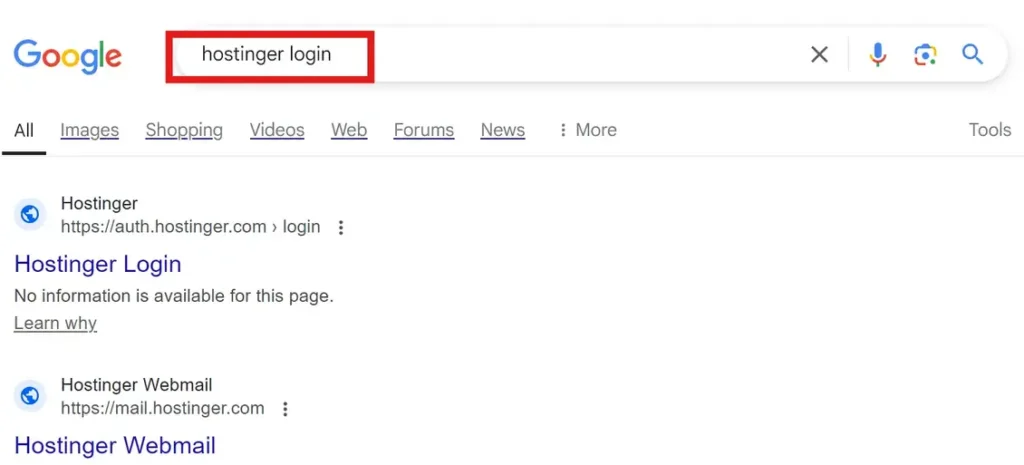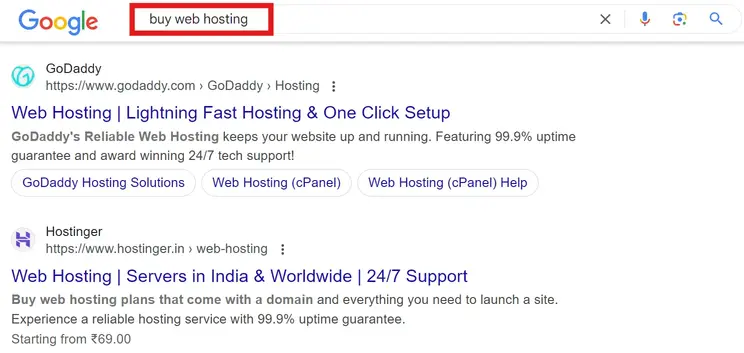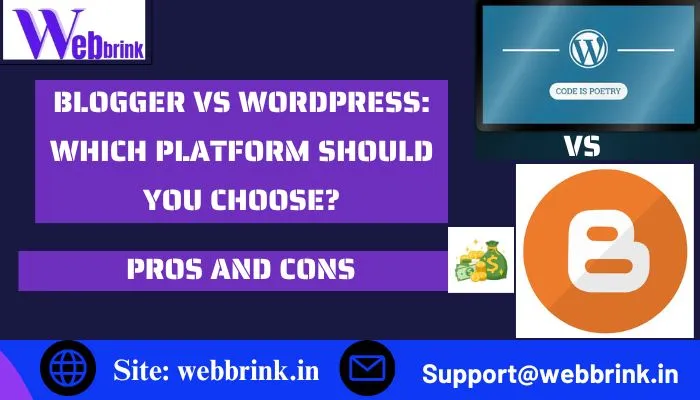What Is a Keyword?
A keyword is a digital marketing term consisting of words used to rank a website’s webpage on various top search engines, such as Google, by optimizing the content. It is called a keyword in SEO or digital marketing.
Search Engine Optimization (SEO) means optimizing web content to rank higher on search engines like Google. One of the most important On-Page SEO aspects is keyword optimization, as keywords determine how search engines understand and rank your content. However, not all keywords are the same. They come in different types based on search intent and competition.
In the blog post, I will explain the various types of keywords in SEO, their importance, and how to use them effectively to improve your website’s search rankings.
Table of Contents
Why Are Keywords Important in SEO?
Keywords play a fundamental role in SEO for the following reasons:
- Search Engine Visibility: Using the right intent of keywords that align with the user helps search engines such as Google understand your webpage’s content and rank it well.
- Targeted Traffic: By using different types of keywords, attract the relevant audiences to your website, which leads to increasing engagement and conversions that is what businesses want.
- Content Optimization: Selecting the right keywords by the advanced keyword research techniques ensures that your content matches with user search intent.
- Competitive Advantage: One of the most important benefits of the keywords is that a proper keyword strategy helps you outrank your business competitors and gain better brand online visibility and exposure than them.
- Improve Local SEO and Business Visibility: Geo-targeted or local keywords (e.g., “best marketing agency in Vegas“) help local businesses rank higher in local searches and Google Maps. People prefer local businesses more than those they don’t know or can’t meet physically due to the business location. The users might trust the business easily than the one close to their home location.
- Increase Click-Through Rate (CTR): Every business, whether small or big, wants to increase the CTR means when the business website appears in the Search Engine result pages(SERPs), People generally click more often if you add well-optimized keywords in titles, meta descriptions and URLs encourage users to click on your link over competitors.
What Are the 4 Types of Keywords Based on User Search Intent?
1. Informational Keywords
These types of keywords are used when users seek information, research, or answers to specific questions. These keywords generally start with questions such as “How to”, “What is/are”, “Why,” etc, but not necessarily because they may not have these Wh-family words still be called the information keywords as users use these types of keywords for getting information about any topic.

Examples:
1. How to fix the “alternate Page with Proper Canonical Tag” error
2. How to Choose the Best Blogging Platform: A Complete Guide for 2025
Consider the Other below informational keyword examples without containing a Wh-family or question word.
- 5 Best Web Hosting For Small Businesses
- The Best 5 Free Tumblr Alternatives in 2025
What are the Benefits of Informational Keywords:
- Good for informative blog posts, FAQs, and educational content to drive an engaging audience and potential customers.
- Helps in building trust and brand consideration because you generally provide value to the potential customers by educating them via blogs, etc.
2. Navigational Keywords
These types of keywords are the keywords users use to navigate or search for a website or webpage searching for navigational keywords. Users usually already have a specific brand or website in mind. They use these keywords to find a particular website, page, or brand.

Examples:
- Webbrink
- Facebook Login
- Webbrink blog
What are the benefits of Information Keywords?
- If your business name or brand is unique, Navigational keywords help in optimizing your website for branded keywords to make it easier for users to find your brand easily.
- Navigation keywords help business or website owners to ensure that their website ranks for their business or brand name and services.
3. Transactional Keywords
Transactional keywords are the most important and preferred keyword type for almost every business because every business wants their clients to buy either a product or service they offer to survive and run the business and grow with the time. It is the last phase of the buying journey of a consumer.
Transactional keywords have a high purchase intent for a product or service and are used when users are ready to take an action that a website owner wants and considers a conversion, such as buying a product, subscribing, or signing up for a free trial or service.

Examples:
- Buy running shoes online
- Buy laptop deals for bloggers in 2025
- SEMrush Free 14-day Trial Plan
What are the benefits of Transactional Keywords?
- Ideal for e-commerce websites and landing pages
- Optimized for product pages and paid ad campaigns
4. Commercial Keywords
These keywords are used when users are researching before making a purchase decision. It does not mean that they know nothing about the product; rather, they already gathered some knowledge during the initial phase of the buying journey, that is, the information keyword intent phase. Now, they compare products, services, and reviews among the best picks to remove the confusion and choose the final one to make the buying decision.

Examples:
- 5 Best Web Hosting For Small Businesses & Startups in 2025
- Bluehost Vs Hostinger Web Hosting
- Hostinger Hosting Review
What are the Benefits Of Commercial Keywords?
- Commercial keywords are best for product comparison websites, review sites, and affiliate marketing, etc.
- Commercial keywords help in attracting potential customers in the decision-making phase, which is the phase before a customer takes the final decision to buy or take a trial of a service, etc.
What are the Types of Keywords Based on Keyword Length?
There are two types of keywords based on keyword length.
1. Short-Tail Keywords
These types of keywords generally don’t contain more than 3 words, have a high search volume, and are also called generic keywords. Keywords with one to two words have high search volume but are very competitive.
Examples:
- Digital marketing
- Webbrink Blogs
- Hosting Guide
Pros:
- Long-tail keywords have a high search volume.
- They attract a broad audience but lack a high conversion rate.
Cons:
- Short-tail keywords are highly competitive.
- These types of keywords have high Keyword difficulty(KD), which makes them harder to rank for.
- They lack high-user intent because they do not indicate a clear meaning of what a customer searches for, like buying or just gaining knowledge for a product or service.
2. Long-Tail Keywords
Long-tail keywords consist of four or more words and are more specific to users’ search intent and fulfill what a user searches for. They usually have lower keyword difficulty(KD) or organic competition. They make higher conversion rates than the short-tail keywords.
Examples:
Pros:
- The best SEO technique for ranking faster is targeting the short-tail keyword due to less competition.
- Long-tail keywords tend to have a higher conversion rate due to the very close and understandable search intent.
- Matches user intent more accurately than short-tail keywords.
Cons:
- Long-tail keywords generally have a lower search volume than short-tail keywords. If you choose the wrong long-tail keywords with a very low
- search volume, you won’t see any improvement in your SEO strategy fast and gain low traffic.
4. Evergreen Keywords
Evergreen keywords are the type of keywords that are always in trend and have a great search volume, meaning people tend to search for the keywords. These keywords remain relevant over time and continue to drive traffic consistently without updating the content and the keywords.
Example:
- Difference Between Traditional Marketing and Digital Marketing
- How to Choose the Best Blogging Platform: A Complete Guide for 2025
Benefits of Evergreen keywords:
- They are the best type of keywords for long-term content marketing strategies because there is no need to update the content.
- Choosing the Evergreen type of keywords constantly drives the traffic with less optimization of the content due to high search volume.
6. Geo-Targeted or Local Keywords
Geo-targeted keywords are generally used for doing local SEO and targeting specific local locations of the clients by making local landing pages and using the local or geo-targeted keywords to optimize the content for the product or services.
Example of Local Keywords:
- Best Web Development Services in India
- SEO services in Delhi
Benefits of Local or Geo-Targeted Keywords:
- Local keywords are usually best for businesses targeting local customers, as local searches account for 46% of all organic searches on Google.
Conclusion
Understanding the different types of keywords in SEO is most important for optimizing your content and driving targeted traffic to your website by using those most searched keywords that fulfill the user’s intent.
If you use a mix of short-tail, long-tail, informational, commercial, and transactional keywords as per the requirement and goals of your business needs, you can improve your search rankings and maximize conversions with the optimized and intent-based keyword that satisfies the user’s intent.
You can develop a solid SEO strategy by focusing on user intent, researching low keyword competition, and creating high-quality content that aligns with search engine guidelines. You can effectively and efficiently use keywords to enhance your online visibility and grow your business with the right approach.
Read Also: 50+ Best free Business Listing Sites






